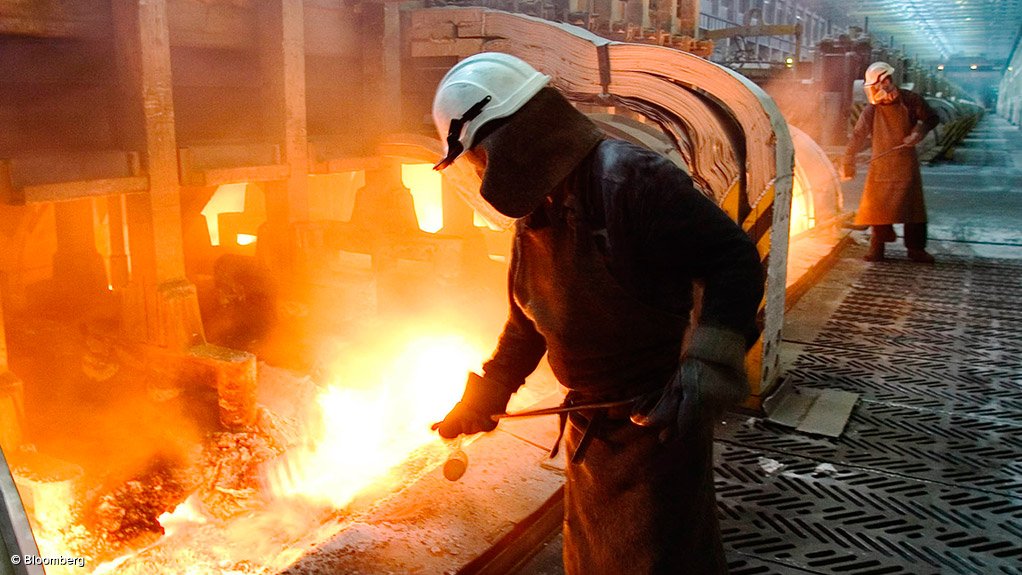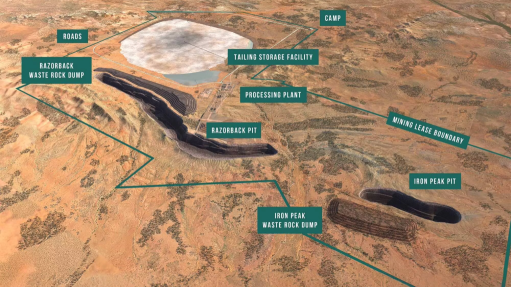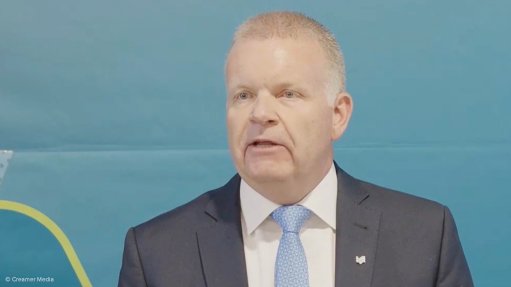Arena releases roadmap for decarbonising alumina refining
PERTH (miningweekly.com) – The Australian Renewable Energy Agency (Arena) has released a Roadmap for Decarbonising Australian Alumina Refining, paving the way for the country’s alumina refining industry to achieve net zero emissions by 2050.
The roadmap was commissioned by Arena and prepared by advisory firm Deloitte in consultation with Australia’s three major alumina producers Alcoa, Rio Tinto and South32, and provides a framework for future policy and investment decisions and serves as a call to action for public and private sectors to collaboratively transition this ‘hard-to-abate’ sector into an industry at the forefront of the transition to net zero.
In a statement on Wednesday, Arena noted that Australia is the largest exporter of alumina globally, which is expected to contribute A$7.5-billion of exports to the Australian economy in 2022. Australia also has an abundance of low-cost renewable energy resources and significant local expertise, both of which are necessary for this sector to achieve its net-zero ambitions.
The industry contributes 3% of Australia’s total emissions and consumes more than 221 petajoules of energy each year, more than the total energy consumption of Tasmania or the Northern Territory.
Approximately 95% of emissions are from the onsite consumption of fossil fuels for process heating.
Compared to bauxite production and aluminium smelting, the abatement pathway for alumina refining in Australia is less clear, Arena said in a statement. Alumina refining is a hard-to-abate industry because there is a lack of low emissions alternatives that are technically mature and commercially feasible. Targeted intervention and transformational change will be needed to reduce emissions from this sector.
The roadmap identifies four key decarbonisation technologies that could transform the way refineries consume and use energy by enabling the uptake of renewable energy and removing the use of fossil fuels. The technologies are mechanical vapour recompression (MVR), electric boilers, electric calcination, and hydrogen calcination. In combination, these four technologies have the potential to reduce emissions from Australia’s six alumina refineries by up to 98%.
These technologies are at varying stages of technological and commercial maturity and require significant investment to support development and implementation. The roadmap identifies that there is no one-size-fits-all approach and different refineries will require different combinations of technologies to achieve net zero owing to the specific barriers and opportunities of individual refineries.
The roadmap highlights early deployment of electric boilers and MVR could result in emissions reductions from 2027, while hydrogen and electric calcination technologies are anticipated to be deployed from the mid 2030s.
The roadmap also highlights critical challenges ahead. These technologies require broader ecosystem development to enable uptake including 3 GW to 5 GW of new firmed renewable generation, new transmission infrastructure, large scale renewable hydrogen supply chains and market and regulatory frameworks that support decarbonisation. Coordinated investment will be required from governments and industry to support this transition.
Arena CEO Darren Miller said the roadmap provides a clear vision for decarbonising one of Australia’s most emissions-intensive industries.
“Alumina refining has always been considered a hard-to-abate sector with significant barriers to reducing emissions.
“Now, we have Australia’s biggest alumina producers coming together with Arena to develop a clear and credible pathway to reducing emissions in the industry. The pathway to net zero for Australian alumina will require close collaboration between government and industry and this roadmap is an important call to action,” Miller said.
“Decarbonising the alumina refining sector can further improve Australia’s international competitiveness, strengthen its position as a leading producer of low emissions alumina and aluminium and secure the jobs and economic benefits from the sector.
"With just four key decarbonisation technologies currently in development to reduce nearly all emissions from Australian alumina refineries, what we need now is coordinated investment to accelerate the commercialisation of these technologies,” he said.
Article Enquiry
Email Article
Save Article
Feedback
To advertise email advertising@creamermedia.co.za or click here
Press Office
Announcements
What's On
Subscribe to improve your user experience...
Option 1 (equivalent of R125 a month):
Receive a weekly copy of Creamer Media's Engineering News & Mining Weekly magazine
(print copy for those in South Africa and e-magazine for those outside of South Africa)
Receive daily email newsletters
Access to full search results
Access archive of magazine back copies
Access to Projects in Progress
Access to ONE Research Report of your choice in PDF format
Option 2 (equivalent of R375 a month):
All benefits from Option 1
PLUS
Access to Creamer Media's Research Channel Africa for ALL Research Reports, in PDF format, on various industrial and mining sectors
including Electricity; Water; Energy Transition; Hydrogen; Roads, Rail and Ports; Coal; Gold; Platinum; Battery Metals; etc.
Already a subscriber?
Forgotten your password?
Receive weekly copy of Creamer Media's Engineering News & Mining Weekly magazine (print copy for those in South Africa and e-magazine for those outside of South Africa)
➕
Recieve daily email newsletters
➕
Access to full search results
➕
Access archive of magazine back copies
➕
Access to Projects in Progress
➕
Access to ONE Research Report of your choice in PDF format
RESEARCH CHANNEL AFRICA
R4500 (equivalent of R375 a month)
SUBSCRIBEAll benefits from Option 1
➕
Access to Creamer Media's Research Channel Africa for ALL Research Reports on various industrial and mining sectors, in PDF format, including on:
Electricity
➕
Water
➕
Energy Transition
➕
Hydrogen
➕
Roads, Rail and Ports
➕
Coal
➕
Gold
➕
Platinum
➕
Battery Metals
➕
etc.
Receive all benefits from Option 1 or Option 2 delivered to numerous people at your company
➕
Multiple User names and Passwords for simultaneous log-ins
➕
Intranet integration access to all in your organisation




















